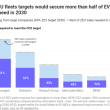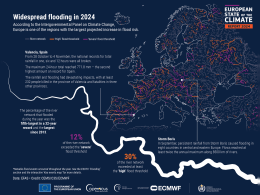A coalition of climate-vulnerable nations is leveraging a United Nations meeting this week to advocate for a transformation in credit rating systems, arguing that ratings should account for investments in climate resilience, according to media reports.
The gathering in New York, the second of four meetings leading up to a major finance conference in Spain next year, aims to bolster global efforts to achieve climate and sustainability goals. Central to the discussions are 39 Small Island Developing States (SIDS), including Cuba, Haiti, Fiji, and the Maldives, which face mounting challenges from tropical storms, flooding, erosion, and rising sea levels.
Proponents argue that the current credit rating framework disadvantages these nations by focusing solely on the economic risks of climate change while ignoring the benefits of climate resilience measures.
“For the first time, the credit rating issue is on the table and being negotiated,” said Ritu Bharadwaj, Director of Climate Resilience and Finance at the International Institute for Environment and Development.
Credit ratings, assigned by major agencies like Moody’s, S&P Global, and Fitch, are crucial for attracting institutional investment but are often inaccessible to SIDS. Only 13 SIDS currently hold credit ratings from the “Big Three,” most of which are classified as sub-investment grade or “junk,” limiting access to vital private financing.
While Fitch and Moody’s have acknowledged climate risks in their assessments, they have not directly addressed criticisms of their methodologies, which advocates say overlook the socioeconomic benefits of resilience investments.
Gastone Browne, Prime Minister of Antigua and Barbuda, described the existing ratings system as “illogical, punitive, and backward-looking,” calling for a “more equitable” framework that reflects investment opportunities alongside risks.
The push comes amid growing scrutiny of credit rating practices, with the African Union planning to launch a new ratings agency, asserting that existing models unfairly assess risk in regions like Africa.
With the total annual climate finance goal set at $1.3 trillion during COP29 in Baku, many nations risk being left behind without fair credit assessments, underscoring the urgency of the proposed overhaul.
















